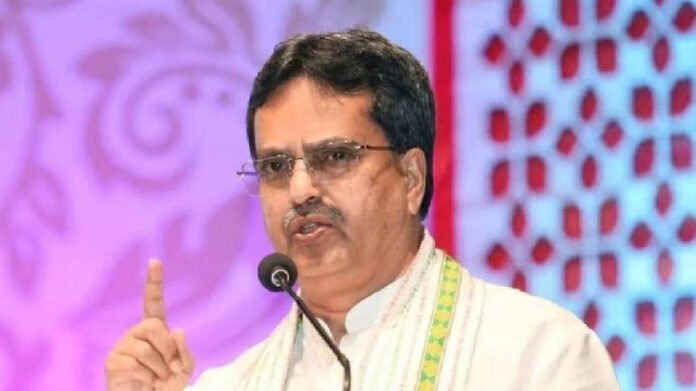Tripura Chief Minister Dr. Manik Saha recently emphasized that India is a peace-loving nation that does not believe in initiating conflict, but is fully capable of giving a strong response when provoked. Speaking at a public event in Tripura, the Chief Minister reiterated the country’s commitment to peace while underlining the strength and resilience of its armed forces.
The remarks came in the context of growing regional and global security concerns, and were widely appreciated by political leaders and citizens alike for reflecting the core values of Indian diplomacy — peace, self-defense, and strategic preparedness.
Peace Is India’s Core Principle
Addressing the gathering, Chief Minister Manik Saha stated, “India never attacks any country. We have always believed in peace. But when the time comes, India knows how to respond strongly and decisively.” His words reflect the strategic doctrine that India has followed since independence — one that balances Gandhian ideals with modern defense needs.
Read More: Tripura CM Manik Saha Leads Blood Donation Drive on Sri Sri Ravi Shankar’s 69th Birthday
Dr. Saha’s comment echoes India’s long-standing foreign policy of non-aggression, which emphasizes dialogue, cooperation, and regional stability. However, he also made it clear that the country will not tolerate any threat to its sovereignty and will respond with strength if provoked.
Strong Leadership in Northeast India
Tripura, being a border state in the Northeast, plays a crucial role in India’s security framework. Under the leadership of Chief Minister Manik Saha, the state has seen consistent development while also ensuring internal stability and border vigilance. His latest remarks on India’s peace policy highlight the growing political awareness in the Northeast regarding national defense and international relations.
Dr. Saha also praised the Indian armed forces for their bravery and discipline. “Our soldiers guard the borders day and night. We sleep peacefully because they are awake. They are the pride of the nation,” he said, adding that the entire country stands united behind its defense personnel.
India’s Defensive Yet Firm Stance
India’s global image has long been that of a responsible power that refrains from aggression but never hesitates to defend its people and territory. In recent years, India has demonstrated this principle through actions like the Balakot airstrike and surgical operations along the Line of Control (LoC), which were carried out in response to acts of terrorism.
CM Saha’s remarks reinforce this narrative. “India doesn’t pick fights, but if anyone challenges our sovereignty, they will face the consequences,” he said, garnering loud applause from the audience.
He also mentioned that India’s foreign relations have strengthened significantly under the current central leadership, allowing the country to maintain peace while asserting its rightful position on global issues.
Youth and Public Awareness
Dr. Saha used the occasion to call on the youth to be vigilant, informed, and patriotic. He urged students and young citizens to study India’s history, understand its peaceful traditions, and also recognize the strength of the country’s military and scientific advancements.
He said, “The youth must carry forward the legacy of peace, but they must also be ready to protect the nation if needed. Patriotism is not just waving the flag — it’s about being aware, informed, and prepared.”
His remarks are seen as part of a broader effort to instill national pride and civic responsibility among the people, especially in a state that shares an international boundary with Bangladesh and remains geopolitically significant.
Tripura CM Manik Saha’s strong yet balanced message on India’s peace policy underlines the nation’s dual commitment to harmony and defense. His words serve as a reminder that while India continues to strive for global peace and cooperation, it remains ever-prepared to protect its sovereignty and citizens.
As the Northeast continues to rise in strategic importance, leaders like Dr. Saha are playing a vital role in aligning regional governance with national interests — promoting peace, unity, and strength.


